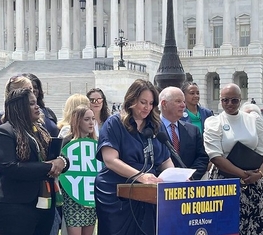LWV Utah v. Utah State Legislature
Case Summary
In 2018, Utah voters passed Proposition 4, which established the Utah Independent Redistricting Commission and banned partisan gerrymandering. The Utah Legislature subsequently enacted Senate Bill 200, which reduced the redistricting commission to an advisory role and allowed the Legislature to impose its own maps. In response, the League of Women Voters of Utah and partners sued in state court, asserting Senate Bill 200 and the new Congressional maps were illegal under state law.
In 2018, Utah voters enacted Proposition 4, which created the Utah Independent Redistricting Commission and imposed several requirements for drawing congressional and state legislative districts. Among these restrictions was a ban on partisan gerrymandering. The Commission was charged with drawing and submitting Utah’s congressional and state legislative districts to the Legislature for approval.
In 2020, the Republican controlled-Utah Legislature enacted SB 200, which made dramatic alterations to Proposition 4. SB 200 repealed the ban on partisan gerrymandering and reduced the Commission to an advisory role, allowing the Legislature to draw gerrymandered districts and ignore the Commission’s proposals.
The League of Women Voters of Utah and Mormon Women for Ethical Government (MWEG) filed a lawsuit in the Third Judicial District Court for Salt Lake County, asserting the Utah Legislature’s alteration of Proposition 4 violated the Utah Constitution’s right to direct lawmaking through ballot initiative. The complaint further asserted that the Congressional districts enacted by the Legislature after the 2020 Census were a partisan gerrymander and violated the Utah Constitution’s clauses protecting free elections, equal protection by the law, free speech and association, and the right to vote.
The League is represented by Parr Brown Gee and Loveless, Zimmerman Booher, and the Campaign Legal Center.
LWV Timeline
League files complaint
LWV of Utah and MWEG file a lawsuit in Utah state court, asserting the legislature’s repeal of Proposition 4, which banned partisan gerrymandering and established an independent redistricting commission, violated several provisions of the Utah state constitution. The complaint also argues the newly enacted Congressional districts are an illegal partisan gerrymander under Utah state law.
Plaintiffs file opposition to defendants’ motion to dismiss
The plaintiffs file a response brief opposing the Utah Legislature’s motion to dismiss, asserting that the court had proper authority, that the Legislature did not have absolute immunity from suit, and that the plaintiffs stated proper claims for relief.
Defendants move for stay pending decision in Moore v. Harper
The defendants request the court to stay proceedings until the Supreme Court ruled on Moore v. Harper, a case which could potentially abolish state courts’ power to hear state-law based challenges to laws on federal elections, including congressional districts, enacted by state legislatures.
Court denies defendants’ motion to stay
The District Court denies the defendants’ motion to stay the case until a decision was made by the Supreme Court in Moore v. Harper.
Court denies defendants’ motion to dismiss
The court denies the motion to dismiss, stating the League and co-plaintiffs could proceed on their claims based upon the Utah Constitution’s Free Elections, Free Speech, Right to Vote, and Equal Protection Clauses. The court dismisses the plaintiffs’ claim that the alteration of Proposition 4 was unlawful.
Defendants appeal to Utah Supreme Court
The defendants appeal the partial denial of their motion to dismiss, arguing that partisan gerrymandering claims were non-justiciable political questions and that adjudicating such claims violated the separation of powers between the branches of government. The defendants also argue the provisions of the Utah state constitution cited by the plaintiffs do not support their claims against partisan gerrymandering.
Utah Supreme Court agrees to hear case
The Utah Supreme Court agrees to hear the partisan gerrymandering claim and reinstates the plaintiffs’ claim against the repeal of Proposition 4.
Utah supreme court holds oral arguments
The Utah supreme court hears oral arguments on whether partisan gerrymandering is justiciable under state law and if the state legislature's repeal of Proposition 4 violated the state constitution.





